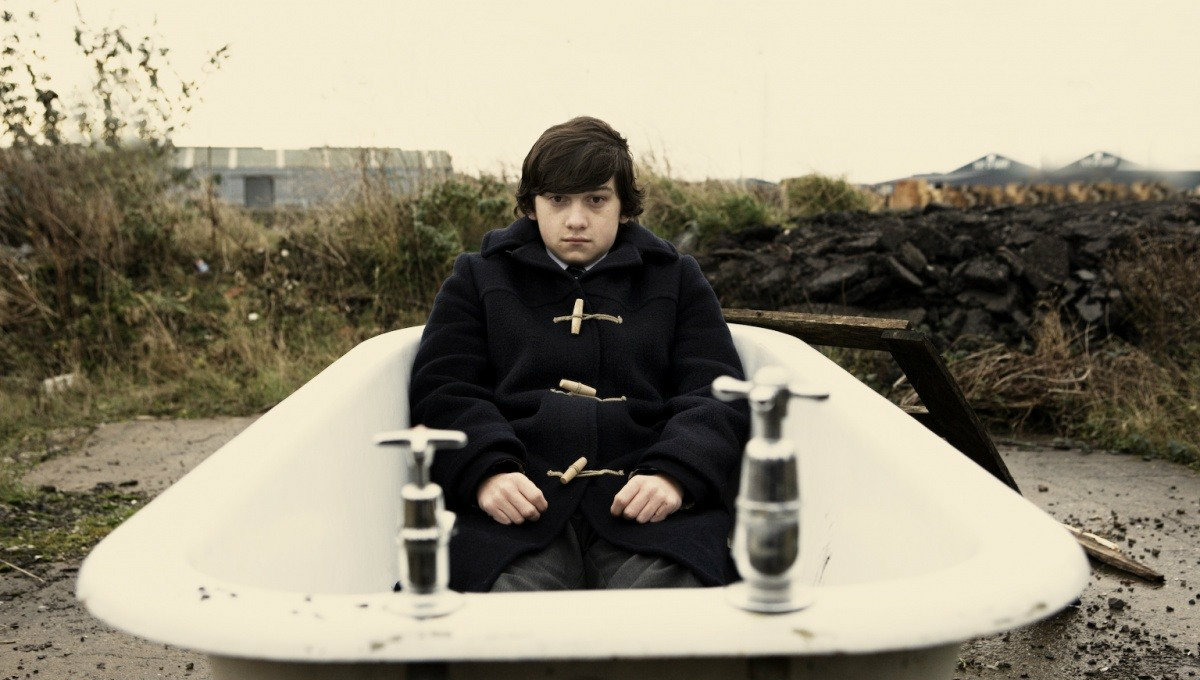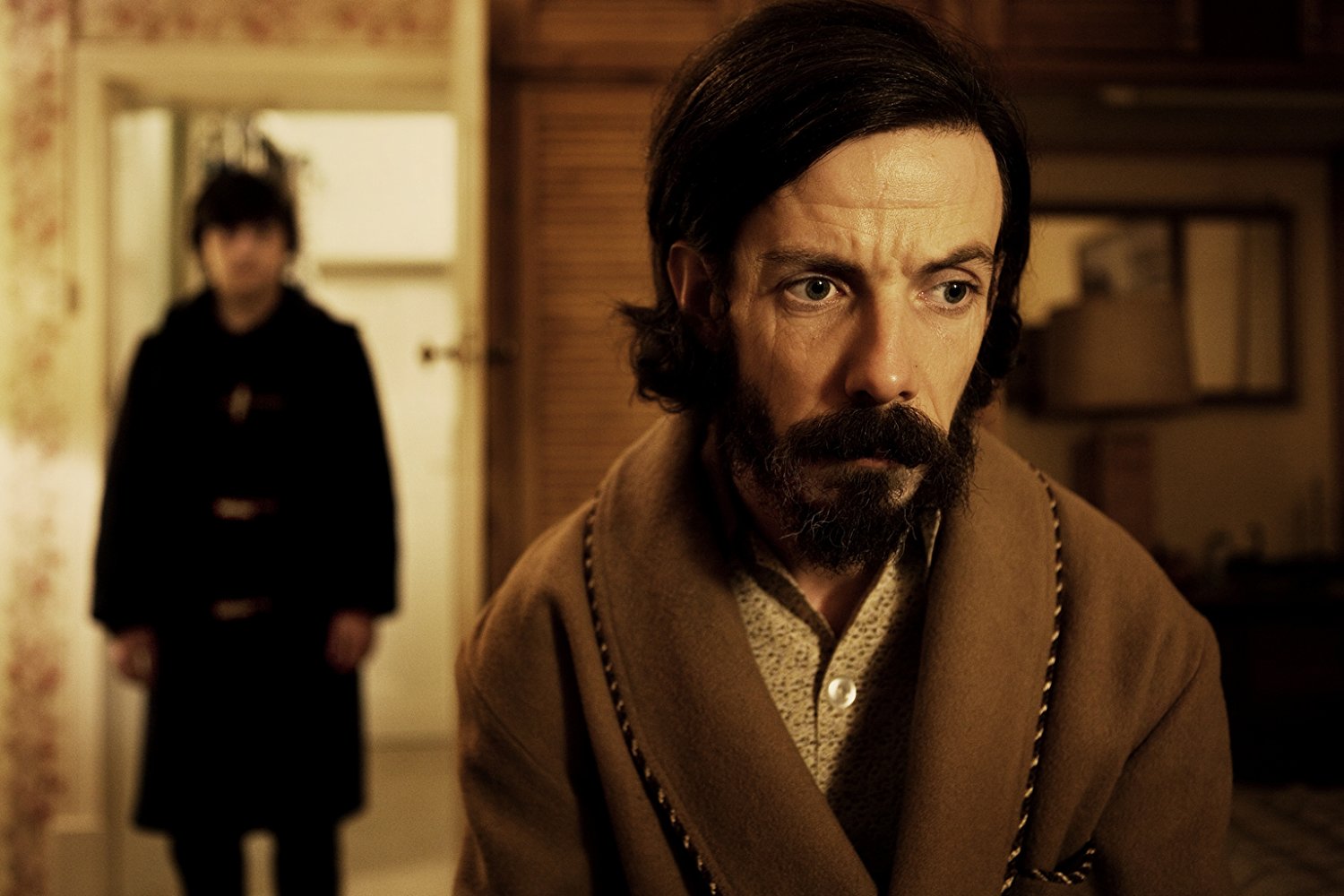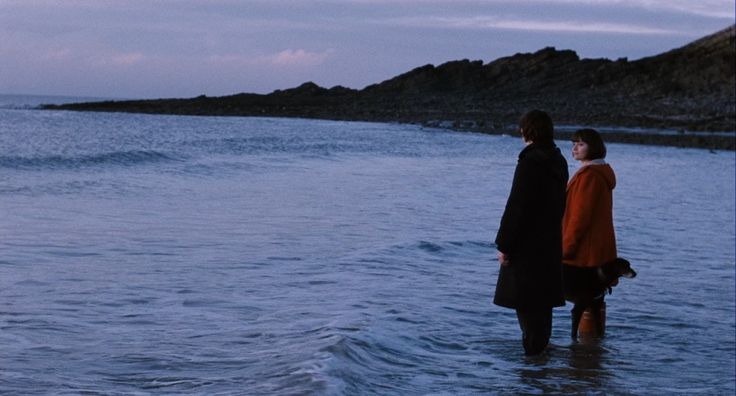4. It offers an honest portrayal of Oliver’s bullying

Teen movies and romantic comedies had transformed radically by the time “Submarine” was released. The edgy, new-age Cinderella vibe of John Hughes had given way to the Wes Andersonian quirkiness of “Napoleon Dynamite” and “Juno,” while the age of Nora Ephron had effectively ended with the rise of post-Judd Apatow/“Wedding Crashers” crudeness and cynicism.
Thus, “Submarine” could never have been played as a straight coming-of-age story about a boy who learns the value of love and friendship. To measure up in a less idealistic era, it had to reveal the contradictions behind its protagonist’s facade—something Ayoade did by embracing Oliver’s mean streak.
That manifests in the film’s first act, when Oliver and Jordana are not yet a couple. His lust for her is pragmatic (at once cocky and cruelly self-deprecating, he decides she’s attractive, but not too attractive for him). Unfortunately, that makes him willing to go to disturbing lengths to win her favor—like helping her steal a bag from their classmate Zoe Preece (Lily McCann).
This scene is profoundly unsettling. As Oliver, Jordana, and the vile Chips frolic through a forest, taunting Zoe with her stolen bag, Oliver attempts to intellectualize the need to bully. “We were challenging one another’s bourgeois assumptions,” he declares, convinced that even though he takes no pleasure in tormenting Zoe, it will be worth it if it helps him woo Jordana (“I must not let me principles stand in the way of progress”).
Soon, “Submarine” breezes past Zoe and onto subplots involving Jordana, Jill, and Lloyd (unlike the novel, the film doesn’t show Zoe returning for exquisite, eleventh-hour vengeance). But the memory of Oliver’s torment of her lingers. He may be the lonely kid who pines for affection from his girlfriend and lives in terror of his seeing his parents split up, but he is also the boy who once taunted an outcast girl until she fell into a pond, humiliated and degraded. Some sins can’t be expunged, and Ayoade was courageous enough not to wipe away Oliver’s.
5. It cleverly revises the character of Graham

“Submarine” is an “unfaithful” adaptation—but that doesn’t seem to have bothered Dunthorne. “A slavish attempt to exactly represent the source text on film,” he told The Paris Review, “always seems more of a betrayal, more unfaithful, somehow.”
He’s right. The kingdom of movie adaptations can be divided into two realms: dutiful, stodgy resuscitations (Chris Columbus’ “Harry Potter” films, David Fincher’s “Gone Girl”) and feverish, rebellious revivals (“Drive,” J.J. Abrams’ first “Star Trek”).
Luckily, Ayoade chose the latter path, offering a sharp new perspective on the story by tweaking Dunthorne’s portrayal of Graham. In the novel, Graham turns out to be the sort of assertive, compassionate father Oliver wants (he even says he wishes he were his son), whereas Ayoade styles him as a manipulative scumbag whose greatest love is likely the comb he uses to groom his impressive mullet.
Did Ayoade simplify Graham too much? His vision of the character is certainly less nuanced than Dunthorne’s. Yet while his changes make the story more conventional, there’s visceral joy to be had in loving to hate the new and not-improved Graham, who in his “finest” moments insufferably babbles about “waves” and “light” (“He’s really working that third eye,” Lloyd observes contemptuously).
The result is two distinct versions of the same story—something that Oliver, ever determined to rewrite his own life, would surely appreciate.
6. Ayoade’s revised ending

Dunthorne’s novel is, in some ways, a tragedy. While it ends with the bond between Oliver’s parents reaffirmed, his own bond with Jordana collapses. He’s left with little choice but to hope that he’ll do better next time—even though “next time” certainly won’t be with Jordana.
Or will it, Ayoade asks? As if staging a chilly, more innocent homage to “From Here to Eternity,” he ends the movie with Oliver and Jordana romantically reconnecting on a beach. “I know I made a mistake,” Oliver tells her, making his most honest profession to date. Jordana responds by slowly walking further and further into the ocean. Oliver follows, realizing that this is a test. How far, she is asking, will he follow her?
Pretty far, it turns out. Oliver gets drenched up to his ankles, giving us a Hollywood ending that Dunthorne wouldn’t have gone for that nonetheless feels moving and right—for Oliver, it’s a humbling but hopeful emergence from his failings. Each detail of the scene is so vivid—from the sound of rushing water to Jordana’s crimson coat—that it feels like it could be from one of Oliver’s hyperactive daydreams. But it’s all beautifully real, just like the tender look that crosses Jordana’s face as she looks at Oliver as they stand together with horizon before them.
Author bio: Bennett Campbell Ferguson is a freelance film critic and culture writer based in Portland, Oregon. In addition to reviewing films for Willamette Week, he founded the blog T.H.O. Movie Reviews, which he also edits.